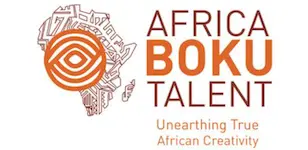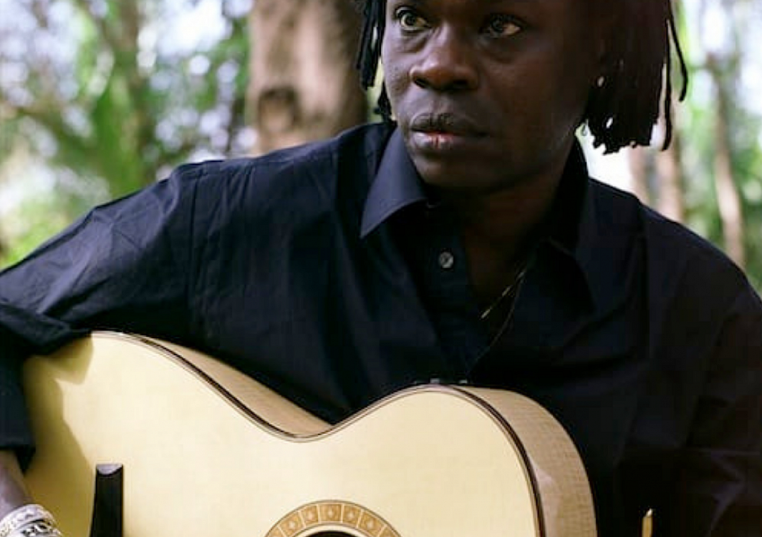Baaba Maal (Fula: , born 13 June 1953) is a Senegalese singer and guitarist born in Podor, on the Senegal River. In addition to acoustic guitar, he also plays percussion. Maal was expected to follow in his father’s profession and become a fisherman. However, under the influence of his lifelong friend and family gawlo, blind guitarist Mansour Seck, Maal devoted himself to learning music from his mother and his school’s headmaster. He went on to study music at the university in Dakar before leaving for a three month stay in Paris to learn musical notation. In the event, he stayed for three years in the French capital, where he took courses at the Conservatoire de Paris, had private tuition and was taken with Mozart. After returning from study in Paris, Maal studied traditional music with Mansour Seck and began performing with the band Daande Lenol. Maal’s fusions continued into the next decade with his Firin’ in Fouta (1994) album, which used ragga, salsa and Breton harp music to create a popular sound that launched the careers of Positive Black Soul, a group of rappers, and also led to the formation of Afro Celt Sound System. His fusion tendencies continued on 1998’s Nomad Soul, which featured Brian Eno as one of seven producers. In addition to his various solo releases, he contributed to two tracks, “Bushes” and “Dunya Salam”, on the concept album 1 Giant Leap. In 1998, Maal recorded “Bess, You Is My Woman Now” for the Red Hot Organization’s compilation album Red Hot + Rhapsody: The Gershwin Groove, a tribute to George Gershwin which raised money for various charities devoted to increasing HIV/AIDS awareness and fighting the disease. In 2002, Maal again worked with the Red Hot Organization, recording “No Agreement” alongside Res, Tony Allen, Ray Lema, Positive Black Soul and Archie Shepp; as well as “Trouble Sleep Yanga Wake Am” alongside Taj Mahal and featuring Kaouding Cissoko and Antibalas, for the tribute album to Fela Kuti, Red Hot + Riot: The Music and Spirit of Fela Kuti. On 7 July 2007, Maal performed at the Live Earth concert, Johannesburg. Maal’s album On the Road, a live acoustic album recorded straight from the mixing boards of his shows over a ten-year period, was released in 2008. A new studio album, Television, was released in 2009. Maal voiced the Wakandan soundtrack of Black Panther for Ludwig Göransson, helping introduce Göransson to many of the African musicians who contributed to the score.[10] Maal’s vocals can be heard on tracks “Wakanda” and “A King’s Sunset.”[11][12] The two musicians rejoined each other to collaborate on the score for the sequel Black Panther: Wakanda Forever, including Maal doing a brief cameo in the film itself as a funeral singer.[13] To celebrate the launch of the film’s trailer, Maal and Massamba Diop staged a performance at San Diego ComicCon.[14] His vocals can be heard on the sole track, “Nyana Wam.” In an interview with The Metropolitan Museum of Art in 2020, Maal discussed the ritual quality of traditional instruments, and how he chooses instruments to convey his songs’ messages: “The spirit of the kora and the ngoni are different from the talking drum and the balafon, or the sabar and the djembe. The kora and ngoni are closer to human beings, because they are made from things that had life. The talking drum, the balafon, and the sabar are made from wood, and when you listen to them your mind goes out into the forest. When you make music and write songs, you have to know about the messages. From the messages, you know what the instruments are and how to put them together underneath the lyrics. On March 28, 2016, Maal launched Nann-K, a charity focusing on global sustainable development. The launch coincided with International Women’s Day, featuring a concert by Maal himself. The date was chosen to honour the involvement of women in the development of business in Africa. There has since been a first anniversary show at Dakar’s Amadou Barry stadium. The intention of NANN-K as an organization is that it will support people from Senegal, and then throughout Africa, in developing a career in agriculture – through farming the land, raising animals, and fishing. All these are time-old rural pursuits but they have never been organized or brought into the 21st century, let alone combined with the latest digital thinking. On December 11, 2019, Maal promised to fight to stop the desertification in the Sahel by planting trees. He said he hoped every person in Senegal could say they planted a tree.

